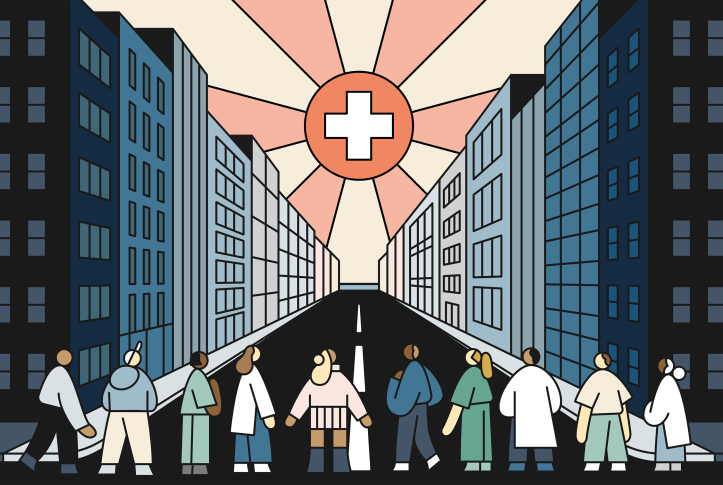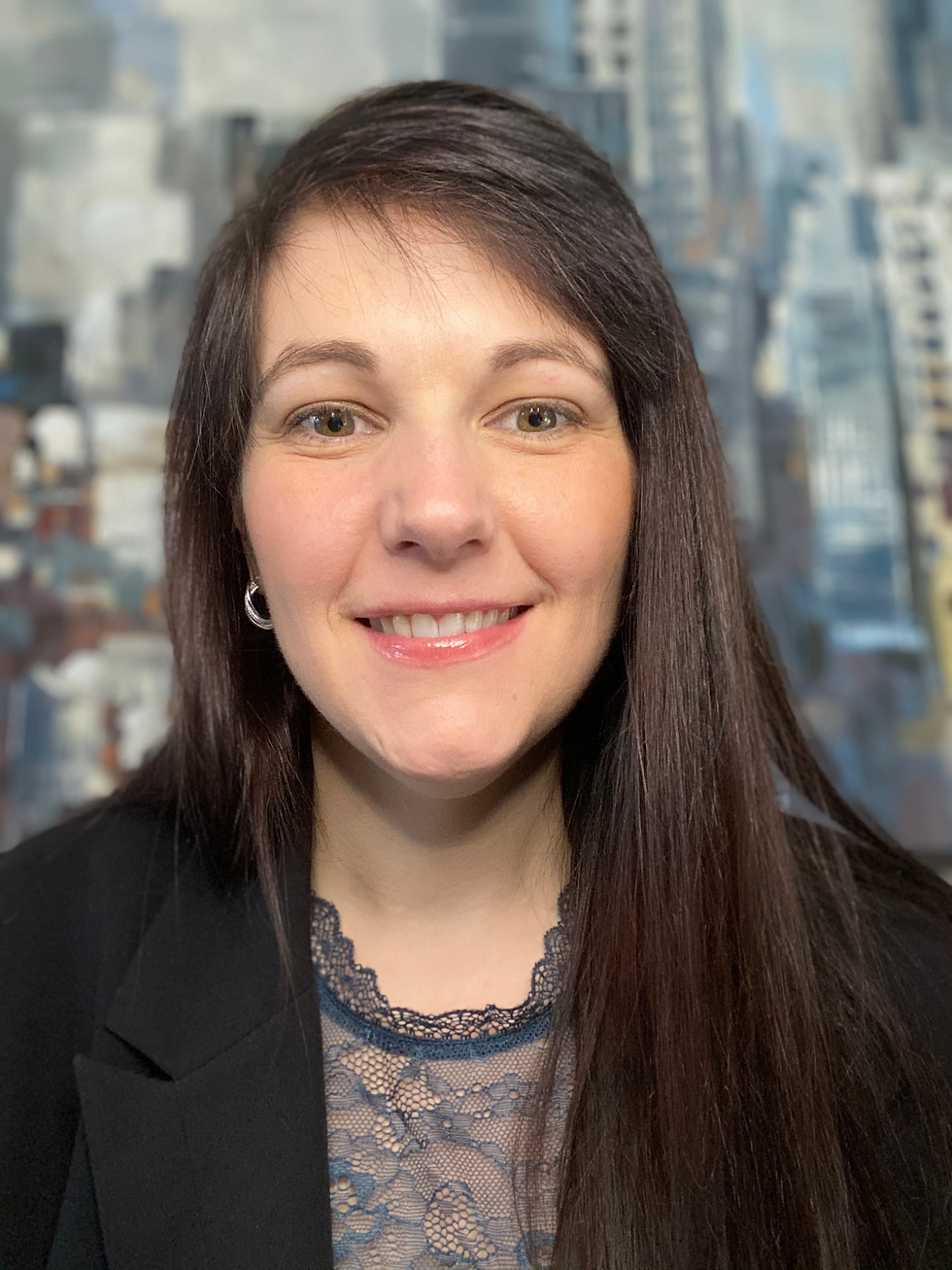A New Kind of Literacy
- Sara Bergenholtz
- May 28, 2023
- 7 min read
Updated: May 28, 2023
In nursing school I was taught to teach to the level of a fith grade education when helping the people in my care. I was taught not to assume that the person I was speaking to was literate and not to expect them to tell me if they weren't. Don't use medical terms or jargon, they said. Always offer an interpreter for those who have English as a second language, because they may get lost in all of the medical talk and be embarrassed to say anything.
When I began working on the floor in 2017 I suppose it never really occurred to me that we work around the people we care for and we work on the people we care for, but we rarely work with the people we care for. Every aspect of their care is a task either on a flowsheet in the computer or on the mental list we all keep running over in our mind. Medications at 8. Up for meals. Ambulate three times a day. Turn every two hours. Shower. Eat. Void. Check output. Vitals signs every 4 hours. Neuro checks. Swallow studies. IV care. Skin care. Labs. Imaging.
The list goes on and on, as well we know.
We do these things because it is our job, or it is the way the system has forced us to perform our job, with all the high ideals of nursing school and holistic care lost in the dust of graduation and the institutionalized hazing of new grads.
We grow frustrated with so called "frequent flyers", those who pop in and out of the hospital so often they're practically residents (I have feelings about this term, but I'll save them for another day). Our sense of frustration grows all the worse when we perceive chronic health problems and decompensation solely as the result of the personal choices of the person in front of us. This is human and to be expected, however little grace we are willing to give ourselves. We are so indoctrinated into the health system that we loose sight of how hard it is for others to navigate their own healthcare, illness and treatment.
The CDC states that 9 out of 10 adults in the US have struggles with health literacy, and this is true regardless of their actual literacy. Not unexpectedly, this is is worsened when people are interacting with the healthcare system during times of stress and/or illness, or during periods of recovery. So, every person we see in the hospital, many we see in clinics and the community setting.
This is not, I think, news to nurses. Intellectually we all understand that we are not seeing people at their best, that in our roles as healthcare providers we almost never see people who are in a position to actively participate in any kind of learning or retain anything we say to them about their own care.
Yet that doesn't change the fact that this is exactly what we need them to do. What we expect them to do, and do well.
When they can't, important things like medication, follow up appointments, and health maintenance get forgotten or misunderstood. People make medication errors, they forget or misunderstand what they were told and their health decompensates. We know this. We see this every day. Too often, these moments of illness and crisis are the only contact we have with those in our care and still we expect them to be able to understand the issues we so desperately want to address. If we can't even effectively teach them to understand their own healthcare, how can we expect them to understand the urgency in our collective voice when we talk about things like workplace safety, staffing, and the effects of private equity firms investing in healthcare systems?
When those of us in the healthcare system look around we do not see a thing done right. We do not see a system serving those in its care at all well. We do not see a system that is going to be able to sustain itself in its current form for an extended period of time. Last fall my CNO made a comment about "trying to stop the healthcare system from collapsing" and I came back at her with the statement that it already was (This was the staffing committee where our new CEO initiated the process to increase our ratios. Pro tip, if your company hires someone from the midwest or any other not-nurse-friendly state prepare for the worst).
When those in our care look at the healthcare system they see something entirely different. Partially, that is on us because we work hard to keep our struggles on a given shift away from the little oasis of their room. They see the increased wait times, extended scheduling of appointments, and the reduction in services as momentary inconveniences, as a stress on a great system that will soon rebound.
It isn't going to rebound.
I am of the fairly radical opinion that it shouldn't. The opinion that when something is as broken as our healthcare system is you put the duct tape away and start fresh. Regardless of what the solution eventually proves to be, we are in a moment of great disruption and it seems that only healthcare workers are aware of that. How could we expect any less (or more) when the system is such that we cannot even adequately educate those in our care to their own health needs and certainly never get the opportunity to educate them on the health of the systems they are so dependent on?
Another thing I was taught in nursing school is that it is part of my job to educate those in my care.
I have recently come to the conclusion that "those in my care" includes the community at large.
What does that look like? I have stated that I want to increase community outreach, education and collaboration, but what does that mean?
To start, I want nurses to partner with the state and/or local organizations to begin health literacy in high school. School nurses are a criminally undervalued population and we need to empower them and help develop resources for them to work with our public health brethren to begin this task. I want to engage the community by bringing them together with nurses in community town halls where they are given the opportunity not to ask us for medical advice, so much, but to ask us questions about the healthcare systems they interact with. I want to take steps, outside of the control of our employers, to increase the healthcare literacy of our communities as that applies both to their personal health and to the healthcare system as a whole.
Where we can talk to them as fellow community members, not as patients, not as people we are caring for. Let's face it, we all have our patient voice and scripts, we all have a specific way of interacting with those in our care that we generally don't carry with us into our lives outside of the hospital. I do, although I cannot say if it's just another version of the customer service voice I developed long before I was a nurse, or something new I developed at the bedside. Sometimes it makes me think of the voice I used as a nanny. Sometimes that's okay, mostly it's not though and it makes me ashamed when I catch myself using it. Whatever it is, we need to put it aside and start speaking with the members of our communities as people who are fully capable of understanding the complexities of the situation if someone would take a moment to explain it to them.
According to the Centers for Healthcare Strategies, 36% of adults in the US have low health literacy, and this is often concentrated in groups with lower economic status, low english proficiency, the elderly, and those receiving government subsidized healthcare.
So, just about everyone we care for.
We cannot expect those who do not understand the system in which they exist well enough to meet their own health needs to navigate the complex issues we face in trying to improve our healthcare system. Maybe that worked before the foundations started to crumble, but it isn't going to keep working. They cannot support changes to a system they do not understand the need for. The healthcare systems have spent decades convincing our communities that we have the greatest healthcare in the world. Of course, the tragedy is that we could.
It is our job now to raise our collective voices not to complain, but to educate and explain. To draw the curtain back despite the screams of the healthcare systems we work in. We help no one by talking about these issues amongst ourselves alone and letting the various hospital associations set the narrative. We know there are problems, we know what they are. We aren't the ones we need to convince to enact change.
A small story. Last winter my hospital experienced the highest emergency department volumes it had ever seen. This came roughly a month after administration had made the decision to close one of our PCU floors to save money by decreasing its use of travel nurses. Predictably enough, this resulted in a backlog with several people spending days in the ED (boarders) waiting for a bed to open upstairs. Our ED has around 25 beds if you count the hall beds. At one point, we had 18 boarding patients. At this time, either the very week this happened or the week immediately following it, our hospital released a statement to the local newspaper stating that, "the increased wait times are not the result of any staffing issues CH might be experiencing ".
That's how confident they are my friends. They know very well that the hundreds of nurses at the facility know this is a blatant lie. They know very well that we are part of this community and would not be unaware of their lie. And they didn't care. We have done a very good job, we nurses, of not talking about these things to those outside the healthcare world and it has to stop.
Luckily, because we have a union, we were able to counter this narrative and communicate with several reporters about the truth of the situation. Because that's another benefit of a union. Through the union it's a lot easier to defend and actually use our right to discuss working conditions without retaliation. As an Officer (traditionally union Steward) I am considered the equal of administration when acting in my role as Officer. We can do and say things that others can't and this is another criminally underutilized aspect of unionism that I would like to see changed.
We have the tools we need. We have the trust of the public, even if it doesn't always feel that way. Yes, it sucks that it somehow falls to us, but if we aren't willing to do this who will? We know how the hospitals are handling it, and it isn't with consideration for what's best for anyone but themselves.
As the saying goes, when you see something, say something. I've seen more than enough.
Finis
The rights of Union Stewards: https://www.wfse.org/system/files/knowyourrights_disciplinehandouts.pdf
National Library of Medicine: What is health literacy
Centers for Healthcare Strategies: Health Literacy Fact Sheet
My Interview With Local Reporter on Staffing Changes:
Facility Interview on Wait Times









Comments